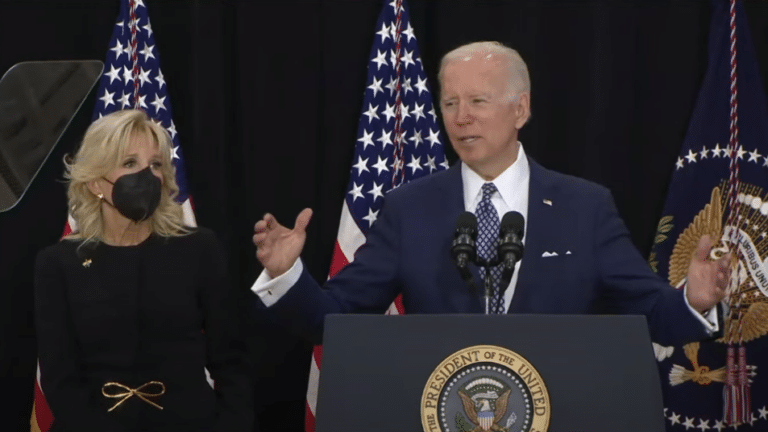The first new federal gun restrictions in decades became law on Saturday.
With the stroke of his pen, President Joe Biden wiped away the ability to sell guns to Americans who fall into two categories. By enacting the Bipartisan Safer Communities Act, Biden effectively eliminated sales of guns and ammo to those with disqualifying juvenile records such as felony convictions or involuntary commitments for the rest of their lives, upending how the juvenile criminal justice system works in most states. His pen stroke also expanded prohibitions for domestic violence misdemeanor convictions to those committed against “dating partners.”
“Their message to us was do something,” Biden said. “How many times have you heard that? Just do something. For God’s sake just do something. But today we did.”
His comment echoed those of Senator John Cornyn, the key Texas Republican who negotiated the gun deal in the Senate.
“Since the shooting, my office has received tens of thousands of calls, letters, and emails with a singular message: Do something,” Senator John Cornyn (R., Texas), a negotiator from the Republican side, said in a floor speech. “Not do nothing. But do something. I think we’ve found some areas where there is some space for compromise”
While the deal does not include top priorities for gun-control advocates, such as an “assault weapons ban” or universal background checks, it is the first time in decades the federal government has barred selling guns to new classes of Americans. The new law could have far-reaching consequences given that Americans of any age who committed a crime as a juvenile but never faced legal trouble as an adult suddenly find themselves unable to legally buy guns or ammunition. Since those records have traditionally been sealed in most states, it is impossible to know for sure how many people will be affected.
The deal does not include any priorities of gun-rights advocates at all. However, it does include hundreds of millions in funding for mental health crisis programs and school security initiatives favored by Republicans and some gun-rights groups. It also makes funding for “Red Flag” laws optional for states and provides alternative programs which are eligible to receive the same funds.
There are several other measures in the deal too. Those include a seemingly redundant prohibition of straw purchases and gun trafficking as well as a change to the standard for who needs to obtain a federal license to legally sell guns.
The bill’s enactment comes just a month after the horrific shooting at Robb Elementary School in Uvalde, Texas where an 18-year-old gunman murdered 19 children and two teachers as police waited for over an hour to attempt to neutralize him. It passed the Senate with 15 Republican votes and the House of Representatives with 14. It was signed by the President less than a week after the text was made public, despite several apparent drafting errors including the failure to extend possession prohibitions to those with disqualifying juvenile records despite making it illegal to sell guns or ammo to them.
Gun-control advocates celebrated the new law.
“It’s fitting that President Biden, who has been taking on the gun lobby for decades, is the person to sign this lifesaving bill,” John Feinblatt, president of Everytown for Gun Safety, said in a statement. “This law should be a signal to every leader we entrust with the safety of our loved ones: The time has come to reach across the aisle and pass common-sense laws to keep guns out of dangerous hands.”
Gun-rights advocates trashed it.
“Make no mistake, behind the façade and the contrived talking points of safety, school security, and mental health, THIS IS A GUN CONTROL BILL,” the NRA tweeted.






